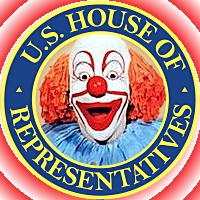 US President Barack Obama is having difficulty coming to terms with Republicans in the House of Representatives over the issue of raising the country’s debt ceiling. The deadline for raising the existing $14.3 trillion ceiling is Aug. 2, after which the Treasury Department won’t be able to pay its bills.
US President Barack Obama is having difficulty coming to terms with Republicans in the House of Representatives over the issue of raising the country’s debt ceiling. The deadline for raising the existing $14.3 trillion ceiling is Aug. 2, after which the Treasury Department won’t be able to pay its bills.
Republicans hold a majority in the House, and many of them are freshmen that rode the Tea Party wave into office last November. These rookies share a conviction that they were brought to Washington on a divine mission to shrink government, no matter what the consequences. On Tuesday, they brought forward a measure to raise the debt ceiling, for the sole point of symbolically voting against it. Which they proceeded to do, followed by much backslappin’, hootin’ and hollerin’. ‘Hey, this politicking stuff is fun, ain’t it? Did ya see me wavin’ on C-SPAN, Ma?’
This dangerous game of financial brinksmanship will likely continue on right up to the August deadline, as Republicans are vowing not to allow the debt ceiling to rise without sharp corresponding cuts to the federal budget. And with serious issues like this facing Washington, the likelihood of progress being made on something so relatively trivial as regulating online poker seems increasingly dubious. (Things will likely move more swiftly at the state level, despite what the US land-based casino giants might prefer.)
While some federal backers are pinning their hopes on the argument that a regulated nationwide online poker system could provide Washington with a billion or two in taxes each year, it’s a bit like parents expecting the proceeds from their child’s lemonade stand will help them make this month’s mortgage payment. Billions or not, it’s a drop in the ocean, in relative terms. And while many of these freshmen Republicans love to tout their libertarian credentials, the social conservatives who helped elect them would flay them alive if they were to suggest online poker was good for America. Simply put, there are far less controversial ways of filling federal coffers.
Like, say, busting online poker companies. The Associated Press is reporting that the Police Department in Anne Arundel County, Maryland will receive $500k of the funds seized via the Blue Monday indictments. The Anne Arundel county mounties had three members assigned to US Immigration and Customs Enforcement’s Homeland Security Investigations division, and the nice ICE folks figure the county’s help in taking down online gambling operations works out to $133k per officer. Good work if you can get it.